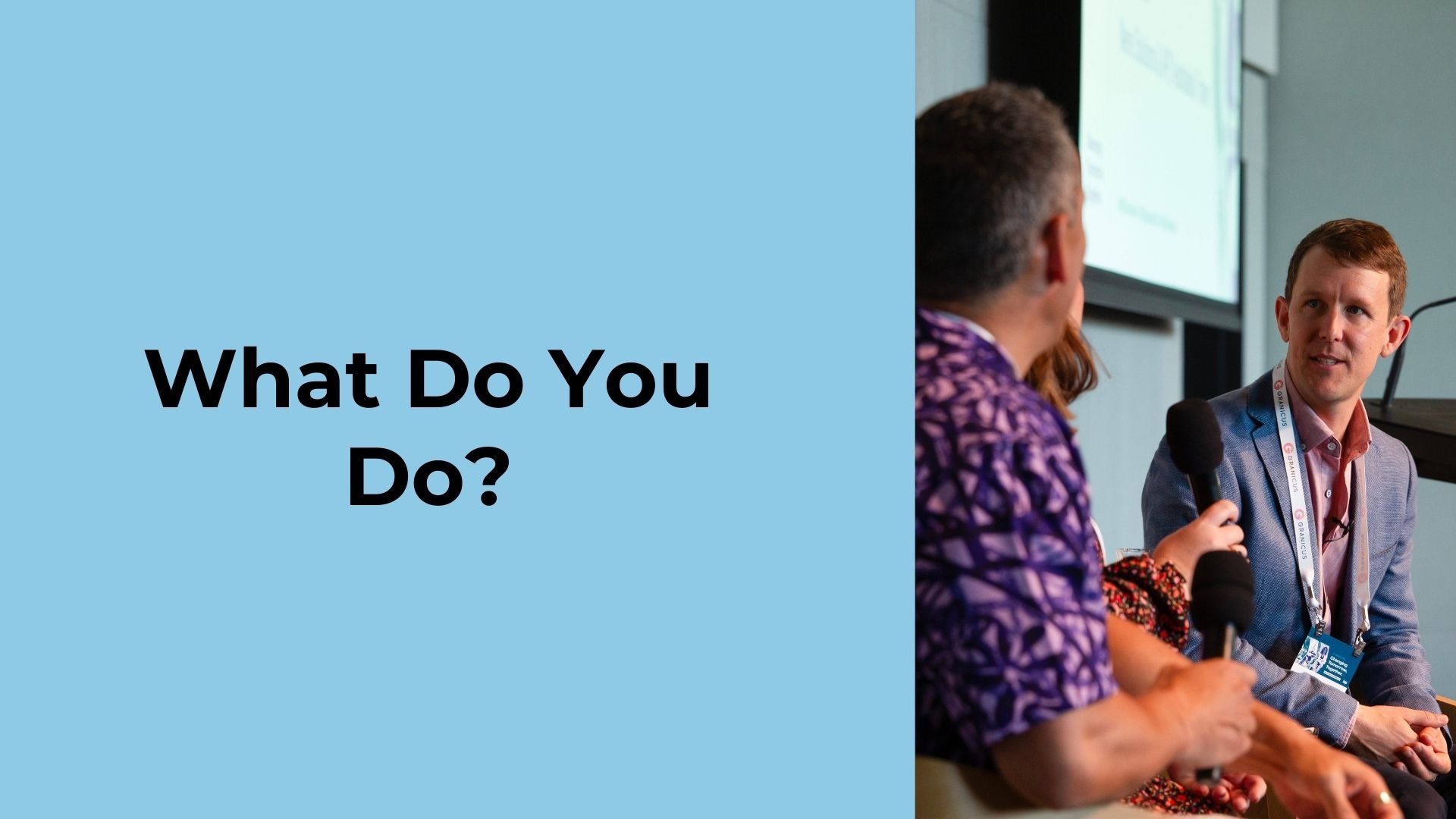We've all been there.
Someone asks, “So, what do you do?” and suddenly you’re scrambling to find the right words.
This question comes up all the time. Job interviews, community meetings, networking events, conferences, and more.
Answer it poorly and you may find yourself trapped in awkward silence - or worse, talking about some inane detail that you wish you'd never mentioned.
🤞Please don't ask me...
It’s a seemingly simple question, but it can be loaded with anxiety for so many of us.
But why?
For one, there’s the identity anxiety. How do you sum yourself up in a few sentences? It just feels impossible.
Then there’s the complexity problem. If your work is varied, how do you share enough so they understand you, without overwhelming them with details? (This has always been my big challenge.)
And finally, there’s the fear of boring others. I once told somebody that I worked as a policy advisor at the Ministry of Justice and he flat out responded with: "That's so boring." (What an arse, right?)
What if your goal was to start a conversation?
These are real challenges, but I’ve recently found a way to navigate them that feels natural and conversational. Finally!
Chris Freeman from Design a Decade taught me how to answer this question in a conversational way, without the stress.
There's three parts. Let's break it down. | 
